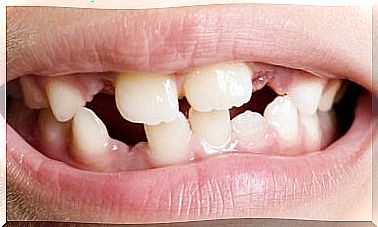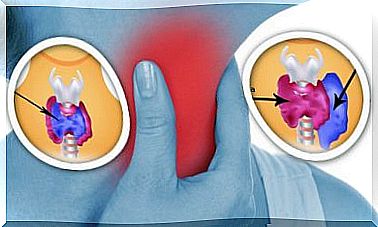Pay Attention: These Traits Indicate That Your Child Has Learning Disabilities
A learning disability is a condition that appears at an early age, and with which the child must learn to live. Recognizing it in time is essential. Know some characteristic features of this condition.

Angelica is 4 years old and for the first time in her life she goes to school. In the classroom, he does not talk or share with other children, nor does he seem to follow the teacher’s instructions. The school psychologist and the teacher cite Angelica’s parents because they see that she has learning problems.
Before long, Angelica’s parents have to meet three times with the school staff. At home, Angelica is a talkative girl interested in learning what Mom and Dad show her. But this is not what happens in school.
The pressure takes its toll on Angelica’s parents and they take her to a consultation with a pediatric neurologist. After an evaluation, the doctor diagnoses that there is nothing abnormal. Simply, Angelica is different from her peers, just as all children are from each other.
Soon after, the “miracle” occurs: Angélica begins to socialize, is interested in what the teacher is presenting to her and talks animatedly with her and her classmates.
Each child has his rhythm

The story we have told has been lived by scores of parents, children, teachers, and healthcare professionals. Although it is common to say that “each child has his own rhythm”, it is not infrequent that exaggerated anxiety makes us see problems where there are none.
The beginning of school brings problems of all kinds, but most are solved in due course. The preschool stage is fun, children learn by playing and teachers have a close and personal relationship.
As children get older, school subjects get complicated, assignments multiply, and relationships with peers take on new and different nuances. The child is more aware of his abilities and limitations. Some are doing well, others not so much.
When are learning disabilities detected?
Although there will be no shortage of professionals who indicate that the earlier learning disorders are detected the better, the truth is that with young children there is a risk of making exaggerated diagnoses.
A specialist is the one who gives the diagnosis of a learning disorder when the child is between 7 and 8 years old.
Learning difficulties affect information processing. For example: the child is slow to learn to read and write, and often has problems with mathematics. You can understand what it is about, but you cannot express it correctly.
This affects not only their school performance, but also their ability to relate to others.
First signs of learning disabilities

In children under 5 years of age, the signs that a child may have learning disabilities are listed below.
- Has trouble with motor activities such as writing, ripping, walking, trimming, buttoning, zipping, and tying cords.
- Simple instructions are difficult for you to follow, they seem too complex to you and you cannot execute them
- He has a delay in speech, problems with pronunciation, it is difficult for him to learn new words.
- It is difficult for him to learn to read, numbers, the alphabet, the days of the week, colors and geometric figures.
- You have trouble concentrating or paying attention.
- You feel frustrated or unmotivated to do school activities or in other areas of your family and social life.
Indicators of learning disabilities in older children
- Has trouble sleeping or eating.
- He is bored and has no interest in school.
- Has bad behavior at school or is aggressive.
- Shows problems identifying and expressing their feelings.
- She doesn’t want to talk about her studies and spends a lot of time doing her homework.
Confirmed: has learning disabilities

Children with learning disabilities have normal or above normal intelligence, but they have a hard time expressing what they know. Because they have trouble learning certain subjects, they often feel frustrated and angry.
These emotions negatively affect your self-esteem. They can even suffer depression, since they know well what they want to achieve, say, write or do, but it is difficult for them to achieve it.
In some cases, children with learning disabilities have disabilities such as dyslexia or dyscalculia, or suffer from both. This undoubtedly facilitates a correct diagnosis. Also, they can present problems of inattention, but that does not mean that they have attention deficit disorders.
How do I help my child?
- Understand and accept that learning disabilities are lifelong.
- The teacher helps detect symptoms and create an environment conducive to learning, but cannot make a diagnosis.
- A good diagnosis and a timely intervention have a very positive impact on the academic life of your child.
- The tests to detect learning problems are carried out by specialists: a psychologist, a child neuropsychologist, a specialized pediatrician or a psychiatrist.
- Children with learning disabilities learn. Focus on their abilities and tastes. That feeds your self-esteem.
- Punishments and reprimands do not work with these children, on the contrary, they can exacerbate the problem.
- When your child throws a tantrum or cries about his limitations, stay by his side. Tell him how much you love him and acknowledge how hard he tries to achieve what you know is not easy for him.
For mom and dad
Raising a child with learning disabilities is stressful. If you need support or psychological therapy, seek it out . Your child will also benefit from mom and dad doing well.
Of course, please, never compare your child with learning disabilities with another child who does not have them, even less with a sibling. Your child will appreciate it.









